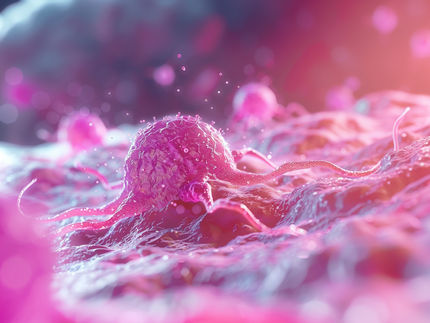Researchers from BGU have generated a promising drug candidate for the treatment of Psoriasis
Researchers from the Department of Life Sciences and the National Institute for Biotechnology in the Negev at Ben-Gurion University of the Negev in collaboration with Teva pharmaceutical industries LTD. have engineered a natural immune system receptor into a promising drug candidate for the treatment of psoriasis.
One of the key signals involved in the progression of Psoriasis is the immune system protein Interleukin 17 (IL-17). In a paper just published in Chemistry and Biology entitled: “Directed Evolution of a Soluble Human IL-17A Receptor for the Inhibition of Psoriasis Plaque Formation in a Mouse Model”, Dr. Marianna Zaretsky and Prof. Amir Aharoni from BGU together with Dr. Liora Sklair-Tavron, Dr. Joel Kaye and Revital Etzyoni from Teva developed a method to inhibit IL-17 pro-inflammatory signals. The team engineered the extra-cellular soluble domain of IL-17 receptor to bind with high affinity to the natural IL-17 protein. The engineered IL-17R was developed by a directed evolution approach, in which an ensemble of mutants is screened for improved properties.
The resulting engineered IL-17R had a much better binding affinity and possessed more stability relative to the natural IL-17R receptor, making it a promising drug candidate. In the paper, the team showed that this engineered IL-17R is highly effective in reducing IL-17 induced inflammatory signals in mice models. Moreover, injection of the engineered IL-17 receptor into a mouse model with acute human Psoriasis led to the abolishment of the symptoms, essentially curing the disease.
Most read news
Other news from the department science

Get the life science industry in your inbox
By submitting this form you agree that LUMITOS AG will send you the newsletter(s) selected above by email. Your data will not be passed on to third parties. Your data will be stored and processed in accordance with our data protection regulations. LUMITOS may contact you by email for the purpose of advertising or market and opinion surveys. You can revoke your consent at any time without giving reasons to LUMITOS AG, Ernst-Augustin-Str. 2, 12489 Berlin, Germany or by e-mail at revoke@lumitos.com with effect for the future. In addition, each email contains a link to unsubscribe from the corresponding newsletter.
Most read news
More news from our other portals
Last viewed contents
Novel Anti-inflammatory Mechanism of Elafin






















































